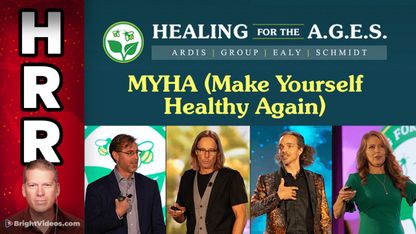
Generalized anxiety and your diet
Generalized anxiety is often linked to a common condition called reactive hypoglycemia. When a person has reactive hypoglycemia, their blood sugar drops to very a low level after they eat or drink food or beverages that have too much sugar.
The results of a series of studies have determined that people who report heightened anxiety related to reactive hypoglycemia can improve their condition by making some dietary changes, such as:
- Increasing protein intake.
- Limiting their sugar and carbohydrate intake in general.
- Reducing or eliminating caffeine from their diet.
However, if you are chronically hypoglycemic even if you already follow a healthy diet, you need to consult a healthcare professional. Doing so can help you determine any possible underlying medical causes of this condition, such as diabetes, kidney disease, and medication side effects.
Anxiety associated with hypoglycemia and malnutrition can be linked to chronic alcohol abuse. Talk to a trusted medical professional to determine how to deal with the physiological consequences of drinking too much alcohol.
Aside from sugary foods and alcohol, caffeine is also associated with an increased risk of anxiety. When you drink caffeine, you also increase the levels of epinephrine, norepinephrine, and cortisol in the blood, which can cause feelings of "nervousness" in adults with no history of mental health concerns.
Consuming coffee can also cause feelings of increased generalized anxiety. Sometimes, caffeine may even cause panic attacks in people who are predisposed to anxiety or panic. A lot of people who have been diagnosed with chronic generalized anxiety report a considerable decrease in the severity of symptoms when they limit their coffee intake.
A dietary deficiency in tryptophan, an amino acid, can cause a decrease in brain serotonin levels. L-tryptophan is an essential amino acid that's also a precursor to serotonin, a neurotransmitter. Low levels of tryptophan can reduce serotonin production in the brain, which can cause conditions such as anxiety, depression, insomnia, or mood disorders.
To prevent the side effects of this deficiency, consume more foods that contain tryptophan, such as:
- Bananas
- Crabs
- Dates
- Eggs
- Fish
- Meat
- Oats
- Pumpkin seeds
- Sesame seeds
- Spinach
- Spirulina/seaweed
Following a proper diet can do more than keep your body healthy. It can also help you manage your anxiety.
Can antioxidants help?
Anxiety is believed to be associated with a lowered total antioxidant state, which means eating foods rich in antioxidants may help ease the symptoms of anxiety disorders.
According to the United States Department of Agriculture (USDA), the following foods are rich in antioxidants:
- Beans (black, dried small red, Pinto, and red kidney beans)
- Berries (blackberries, blueberries, cranberries, raspberries, and strawberries)
- Fruits (black plums, Gala, Granny Smith, or Red Delicious apples, prunes, and sweet cherries)
- Nuts (pecans and walnuts)
- Vegetables (artichokes, beets, broccoli, kale, and spinach)
- Spices with both antioxidant and anti-anxiety properties (turmeric – with its active ingredient curcumin – and ginger)
The following foods can also help reduce anxiety.
- Foods that contain zinc are believed to help lower anxiety. Sources include beef, cashews, egg yolks, liver, and oysters.
- A study has revealed that mice that are deficient in magnesium may display more anxiety-related behaviors, and that foods full of magnesium can help you feel calmer. Good sources of magnesium include leafy greens like spinach and Swiss chard.
- The results of a separate study, which was published in the journal Psychiatry Research, points to a link between probiotics and reduced symptoms of social anxiety. Consume probiotic-rich foods like kefir, pickles, and sauerkraut to help manage anxiety. (Related: Probiotics for your anxious mind? Study shows a certain strain of bacteria could significantly reduce anxiety.)
These "feel good" foods promote the release of neurotransmitters like serotonin and dopamine. Instead of taking drugs that are linked to negative side effects, consume the foods listed above to manage your anxiety naturally.
Browse other articles with tips on how to manage depression and anxiety at BeatDepression.news.
Sources include:
Please contact us for more information.























